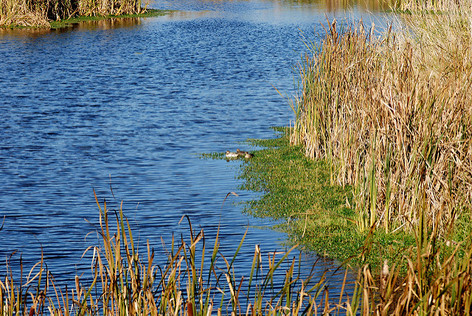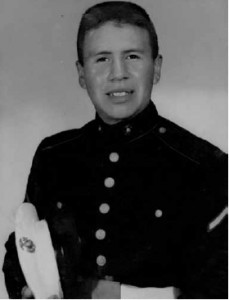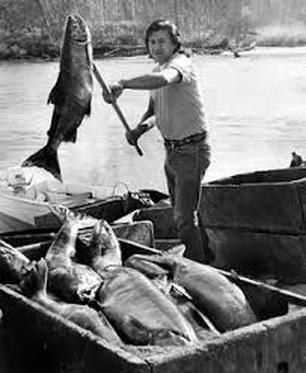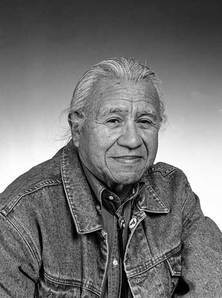We Need Diverse Books: Here's a Story that Needs a Writer!
 Thanks to photographer Bob Coleman for sharing this photo of the Nisqually Wildlife Refuge, so to be re-named the Billy Frank, Jr. Wildlife Refuge.
Thanks to photographer Bob Coleman for sharing this photo of the Nisqually Wildlife Refuge, so to be re-named the Billy Frank, Jr. Wildlife Refuge. Billy Frank Jr. grew up on the Nisqually river in Western Washington, becoming an expert fisherman at a young age, knowing every current of the river, and every creature that made its home in the delta.
The Medicine Creek Treaty had guaranteed Washington tribes the right to fish in their "usual and accustomed places back in 1854. But in 1945. When Billy was just fourteen, state fish and game wardens arrested him for "illegal fishing".
 Billy knew then he’d have to fight for his right to fish, for his the culture and his heritage. But most of that would come after his stint in the U.S. Marines during the Korean War.
Billy knew then he’d have to fight for his right to fish, for his the culture and his heritage. But most of that would come after his stint in the U.S. Marines during the Korean War.When he returned, things hadn't changed. His boats and nets were confiscated, he lived like an outlaw, fishing at night, always on the lookout for men in uniforms.
He was "chased and tear-gassed, tackled, punched, pushed face-first into the mud, handcuffed and dragged soaking wet to the country jail."
 Billy Frank Jr., photo courtesy of the NW Indian Fisheries Commission. Billy Frank Jr. was arrested 50 times fishing on the Nisqually River over next thirty years, as he spearheaded the civil disobedience movement for treaty fishing rights for the Northwest Coast Salish people.
Billy Frank Jr., photo courtesy of the NW Indian Fisheries Commission. Billy Frank Jr. was arrested 50 times fishing on the Nisqually River over next thirty years, as he spearheaded the civil disobedience movement for treaty fishing rights for the Northwest Coast Salish people.
There would be protests at the state Capitol, a full-scale riot on the banks of the Puyallup River in 1970, myriad lawsuits and finally a U.S. Supreme Court ruling in 1979 before the so-called fish wars in Washington were resolved.
Following that victory, Billy Frank Jr. led conservation efforts to restore and protect Puget Sound, worked to unite local tribes and became a national voice for Indian Country.
 After his death in 2014, President Obama posthumously awarded Frank the Presidential Medal of Freedom, the highest honor that can be given a US civilian.
After his death in 2014, President Obama posthumously awarded Frank the Presidential Medal of Freedom, the highest honor that can be given a US civilian.“He saved the salmon that had fed his family for generations,” President Obama said. “He was spat on, shot at, chased, clubbed and cast as an outlaw, but Billy kept fighting because he knew he was right.”
This is a man of courage and many other laudable qualities who was instrumental in creating more justice for Native tribes. His story should be a book for kids, written by a Native American. Maybe I could be a mentor, helping with writing and knowledge of the publishing business?
A new school curriculum on tribal treaty fishing rights and salmon conservation has been developed for free download and use by teachers.
The lessons are intended to supplement history and science classes, middle through high school and include videos and historical photos.
Published on March 18, 2016 11:45
No comments have been added yet.



